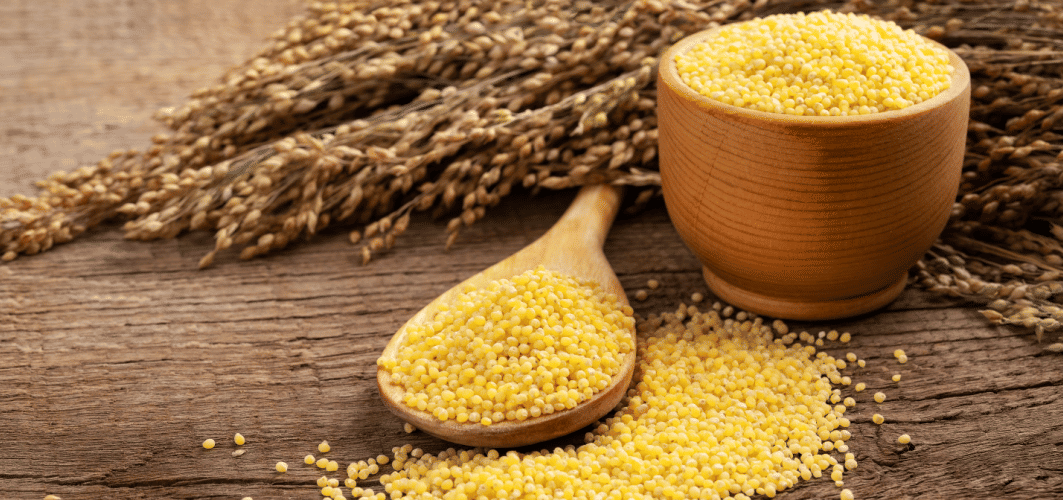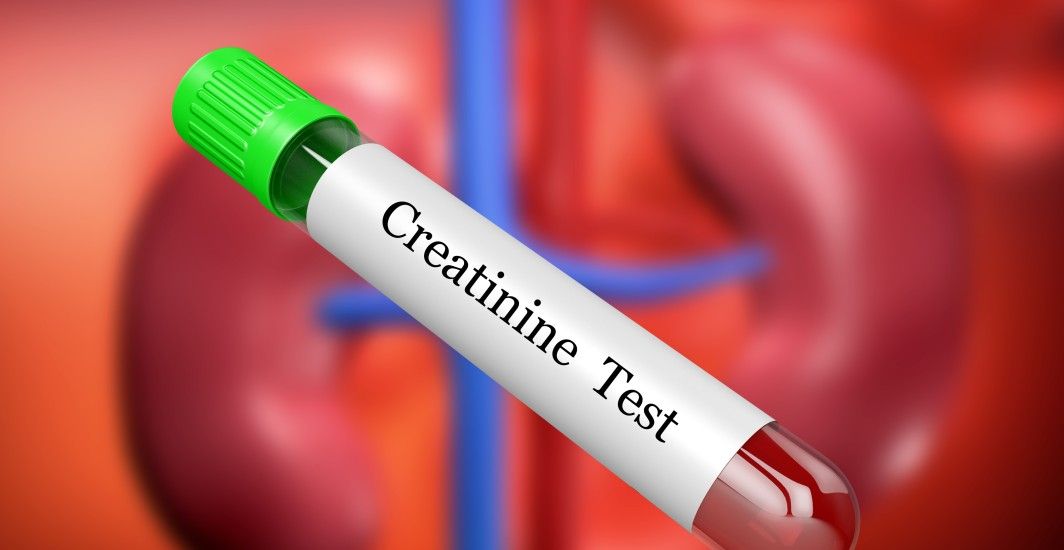General Health
2023 the International Year of Millets: Know 7 Health Benefits of This Cereal
4 min read
By Apollo 24|7, Published on - 18 April 2023, Updated on - 19 June 2023
Share this article
0
0 like

Millets are common cereal grains belonging to the Poaceae family, which is also popularly referred to as the grass family. It is one of the world’s oldest cultivated grains and has been growing all across Southeast Asia and Africa for many millennia. Millet serves as a staple food worldwide and is widely used to make beer, bread, and more. Millets have recently become popular due to the increased awareness about their high fibre, protein, and antioxidant contents. Read on to learn more about the nutritional profile of millets and their benefits.
Nutritional Profile of Millets
Like many other kinds of cereals, millets are also starchy grains with high levels of carbs. They are also packed with a range of vitamins and minerals. A cup of cooked millet (174 grams) provides you with:
- Calories: 207
- Fat: 1.7 grams
- Fibre: 2.2 grams
- Carbs: 41 grams
- Protein: 6 grams
- Phosphorous: 25% of the Daily Value (DV)
- Folate: 8% of DV
- Magnesium: 19% of DV
- Iron: 6% of DV
Note: DVs are the recommended amounts of nutrients one should consume in a day.
Millets are richer in essential amino acids (EAAs) than most other cereals. Your body required EAA to form protein in the body. Furthermore, finger millets are the richest of all cereal grains in terms of calcium content, offering 13% of DV per 100 grams of cooked millets.
Benefits of Millets
Some of the major benefits of millet include:
1. Keeps Blood Sugar Levels Under Control
Millets are a rich source of non-starchy polysaccharides and fibre, both of which help in controlling blood sugar levels. They have a low glycemic index, which means this cereal is unlikely to cause an increase in your blood sugar levels. For this reason, millets are an excellent choice for those suffering from diabetes. A study also suggests that millets make you less susceptible to developing type 2 diabetes.
2. Improves Heart Health
Millets are loaded with magnesium, which is quite helpful in regulating heart rhythm. Millet consumption also increases the levels of protein adiponectin in the body, which helps in protecting cardiovascular tissues. Millets are also rich in niacin or vitamin B3, which helps in reducing certain risk factors for heart diseases like oxidative stress and high triglyceride and cholesterol levels.
3. Promotes Digestive Health
Millets are packed with fibre, which helps promote digestive health and regulate bowel movements. Moreover, it is high in prebiotics, which helps improve overall gut health and immune function.
4. Boosts Mood
Due to the high levels of amino acid tryptophan, millets can help in uplifting an individual’s mood. Research has found that a diet packed with tryptophan can alleviate the symptoms of anxiety and depression.
5. Helps with Obesity
In a recent study, while investigating the effects of millet on high cholesterol and obesity, scientists found that a diet rich in millet can reduce BMI, manage obesity and help lose weight.
6. Reduces Oxidative Stress
Oxidative stress is a reason behind many chronic health issues like arthritis, neurodegenerative disorders, and diabetes. Moreover, a high-fat diet is a major risk factor for dementia as it increases oxidative stress in your brain. Antioxidants are considered essential when it comes to reducing oxidative damage. Millets are a rich source of antioxidants, which help boost the body's ability to prevent oxidative stress. Taking a diet rich in millet can decrease the risk of chronic health problems. Research also suggests that the consumption of millet can relieve oxidative stress in the brain and reduce the risk and severity of Alzheimer's disease.
7. It’s Gluten-free
Millets are popular for being gluten-free, which makes them an excellent option for those suffering from celiac disease or those who follow a gluten-free diet. Notably, gluten is a protein found naturally in many grains like barley, rye, and wheat. Those with celiac disease must avoid gluten because it causes uncomfortable and painful digestive symptoms like nutrient malabsorption and diarrhoea.
All in all, it can be a great idea to include millet in your daily diet to improve your overall health and well-being. For more information on how to introduce millet to your diet,
Medically reviewed by Dr Sonia Bhatt.
General Health
Leave Comment
Recommended for you

General Health
When To Get A Complete Hemogram Test?
Learn about hemogram tests and their importance in providing a complete and comprehensive analysis of your bloodwork and blood composition. Understand when to take these tests, the difference between hemogram and other CBC tests and how to interpret hemogram test results.

General Health
Feeling Bloated or Noticing Changes in Urination? Know How a Creatinine Test Checks Your Kidney Health
Feeling bloated or noticing changes in urination? A creatinine test helps assess kidney function and detect early signs of kidney disease for timely medical intervention.
.jpg?tr=q-80)
General Health
Vitamin B12 Test – Normal Range, Purpose, Procedure and Results Interpretation
Learn about the Vitamin B12 test – its purpose, normal range, procedure, and result interpretation to detect deficiencies and support nerve and blood health.
Subscribe
Sign up for our free Health Library Daily Newsletter
Get doctor-approved health tips, news, and more.
Visual Stories

The Best Exercises for Controlling Blood Sugar Levels
Tap to continue exploring
Recommended for you

General Health
When To Get A Complete Hemogram Test?
Learn about hemogram tests and their importance in providing a complete and comprehensive analysis of your bloodwork and blood composition. Understand when to take these tests, the difference between hemogram and other CBC tests and how to interpret hemogram test results.

General Health
Feeling Bloated or Noticing Changes in Urination? Know How a Creatinine Test Checks Your Kidney Health
Feeling bloated or noticing changes in urination? A creatinine test helps assess kidney function and detect early signs of kidney disease for timely medical intervention.
.jpg?tr=q-80)
General Health
Vitamin B12 Test – Normal Range, Purpose, Procedure and Results Interpretation
Learn about the Vitamin B12 test – its purpose, normal range, procedure, and result interpretation to detect deficiencies and support nerve and blood health.
